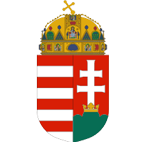Norwegian Partners Received at the Disaster Management Training Center
2016. november 15. 09:31
In the framework of European Economic Area (EEA) Grants and Norway Grants, Norwegian experts visited to Hungary between 5th and 9th May. As a closing event of their itinerary of several days, they also paid a visit to the Disaster Management Training Center. In the morning on 9th May, a three-person delegation arrived in our institution.
Delegation members included a researcher from the Norwegian Water Management and Energy Directorate; a consultant from the Norwegian Directorate for Civil Protection and Emergency Planning; and the head of the Civil Protection Department of Oppland Region.
Miklós Diriczi, Fire Fighter Colonel, deputy director of training, delivered them a presentation on the operation of the training center, its training system, and fire fighter training. The guests inquired about the details of basic fire fighter training.
There was a short discussion with Dr. Antal Papp, Fire Fighter Colonel, Director of the Center, regarding other issues as well – including, in particular, the renewed system of disaster management and the new training and instruction requirements arising therefrom. The consultation was conducted in view of the station program as well as the roles and duties of other local players in cooperation, and the expected positive impact of the Norwegian project.
The Norwegian partners viewed the buildings of the training center and the simulation container, and could see the installation training conducted in the yard as part of the regular training course.
Note: 18 countries are involved in the activities of projects and programs implemented under (EEA) Grants and Norwegian grounds, including 15 Central and South European beneficiary countries and 3 donor states (Iceland, Liechtenstein, Norway). The Grants are intended to help strengthen bilateral relationships with beneficiary countries in Europe, and to reduce social and economic disparities. The Norwegian party contributes 97% of funding under the Grants.
The main areas of support include environment protection and climate change, research and scholarships, civil society, healthcare, gender equality, and cultural heritage. The Grants closely cooperate with the EU.
Miklós Diriczi, Fire Fighter Colonel, deputy director of training, delivered them a presentation on the operation of the training center, its training system, and fire fighter training. The guests inquired about the details of basic fire fighter training.
There was a short discussion with Dr. Antal Papp, Fire Fighter Colonel, Director of the Center, regarding other issues as well – including, in particular, the renewed system of disaster management and the new training and instruction requirements arising therefrom. The consultation was conducted in view of the station program as well as the roles and duties of other local players in cooperation, and the expected positive impact of the Norwegian project.
The Norwegian partners viewed the buildings of the training center and the simulation container, and could see the installation training conducted in the yard as part of the regular training course.
Note: 18 countries are involved in the activities of projects and programs implemented under (EEA) Grants and Norwegian grounds, including 15 Central and South European beneficiary countries and 3 donor states (Iceland, Liechtenstein, Norway). The Grants are intended to help strengthen bilateral relationships with beneficiary countries in Europe, and to reduce social and economic disparities. The Norwegian party contributes 97% of funding under the Grants.
The main areas of support include environment protection and climate change, research and scholarships, civil society, healthcare, gender equality, and cultural heritage. The Grants closely cooperate with the EU.



